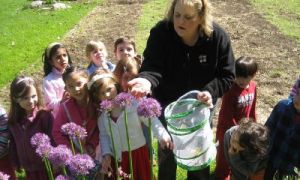Father’s Day offers a chance to celebrate love, care, and connection—but for children without fathers, it can also be a sensitive time. In early childhood settings, educators have a responsibility to ensure that celebrations are inclusive, emotionally safe, and reflective of diverse family structures.
Child-Led Tributes
Encourage children to create cards or gifts for someone who makes them feel safe and loved. This could be a father, mother, sibling, teacher, or other significant figure.
Storytelling That Reflects Family Diversity
Use books and stories that celebrate different family structures—solo parents, same-sex couples, kinship carers, and chosen families. This helps normalize varied experiences and fosters empathy.
Focus on Connection and Gratitude
Design activities around themes of:
-
Kindness
-
Support
-
Shared memories
-
Gratitude for those who care
This shifts the emphasis from titles to relationships.
Gentle Support for Grieving or Father-Absent Children
Offer quiet reflection spaces, memory activities, or opt-out alternatives for children who may find the day emotionally challenging.
Father’s Day can be a joyful occasion for many, but for children without fathers—whether due to loss, separation, donor conception, or other circumstances—it can also be emotionally complex.
Instead of focusing solely on fathers, broaden the celebration to include:
-
Grandfathers, uncles, older siblings, foster carers, mentors, and family friends
-
Any individual who provides love, guidance, and support in a child’s life
Consider renaming the event to reflect inclusivity:
-
“Special Person’s Day”
-
“Loved One’s Day”
-
“Family Appreciation Day”
This helps children feel seen and valued, regardless of their family structure.
Start With Community Consultation
Before renaming or reshaping the celebration:
-
Seek input from families, caregivers, and community stakeholders.
-
Use surveys, informal conversations, or family feedback forms to understand how different households experience Father’s Day.
-
Invite families to share who their child considers a “special person” or key caregiver.
This ensures that any changes are collaborative, culturally responsive, and respectful of lived experience.
By grounding Father’s Day celebrations in consultation, compassion, and connection, early childhood services can create experiences that uplift every child. If you’d like, I can help you draft a stakeholder survey or educator guide to support this approach.
Further Reading
Father's Day Activities For Children
50 Creative Father's Day Gift Ideas For Babies
Father's Day Cards
Father's Day Footprints
Fathers Day - Tools
Daddy Shark Father's Day
Superhero - Father's Day







 Here’s a comprehensive Mobile Phone and Smart Watch Policy tailored for early childhood education and care (ECEC) services in Australia, aligned with the latest 2025
Here’s a comprehensive Mobile Phone and Smart Watch Policy tailored for early childhood education and care (ECEC) services in Australia, aligned with the latest 2025 Across the early childhood education and care sector, educators are sounding the alarm: current staffing ratios are insufficient to deliver safe, meaningful, and developmentally appropriate
Across the early childhood education and care sector, educators are sounding the alarm: current staffing ratios are insufficient to deliver safe, meaningful, and developmentally appropriate Thanks to the new National Model Code and upcoming regulatory changes under the National Quality Framework (NQF), early childhood services across Australia must now implement
Thanks to the new National Model Code and upcoming regulatory changes under the National Quality Framework (NQF), early childhood services across Australia must now implement In the quiet hum of a weekday morning, something felt off. Preschool doors opened, but classrooms remained silent. No greetings. No redirection. No educators. And
In the quiet hum of a weekday morning, something felt off. Preschool doors opened, but classrooms remained silent. No greetings. No redirection. No educators. And A: In early childhood education and care (ECEC) settings across Australia, mobile phone use by educators is now subject to strict national reforms aimed at
A: In early childhood education and care (ECEC) settings across Australia, mobile phone use by educators is now subject to strict national reforms aimed at The end of the year is a busy and emotional time in early childhood services. Many services close for a short period over Christmas, and
The end of the year is a busy and emotional time in early childhood services. Many services close for a short period over Christmas, and Being an educator is both rewarding and demanding. Between planning, documentation, room management, and supporting children’s wellbeing, the workload can feel overwhelming. That’s why practical
Being an educator is both rewarding and demanding. Between planning, documentation, room management, and supporting children’s wellbeing, the workload can feel overwhelming. That’s why practical In early childhood education and care, child safety is not just a number—it’s a practice. While educator-to-child ratios are essential, they are only one part
In early childhood education and care, child safety is not just a number—it’s a practice. While educator-to-child ratios are essential, they are only one part A: Something as simple as a child asking to braid an educator’s hair—or children braiding each other’s can spark important questions about connection, trust, and
A: Something as simple as a child asking to braid an educator’s hair—or children braiding each other’s can spark important questions about connection, trust, and Here's a comprehensive, sector-responsive policy and procedure framework for the safe use of digital technologies—including CCTV—tailored for early childhood education settings. It balances child safety,
Here's a comprehensive, sector-responsive policy and procedure framework for the safe use of digital technologies—including CCTV—tailored for early childhood education settings. It balances child safety,


